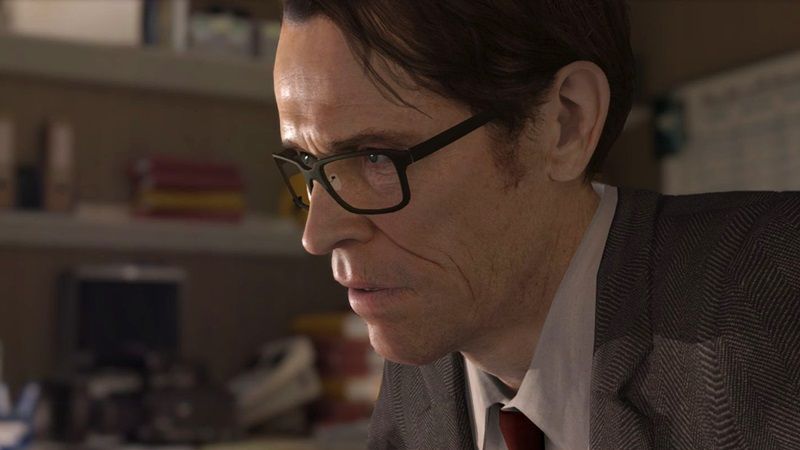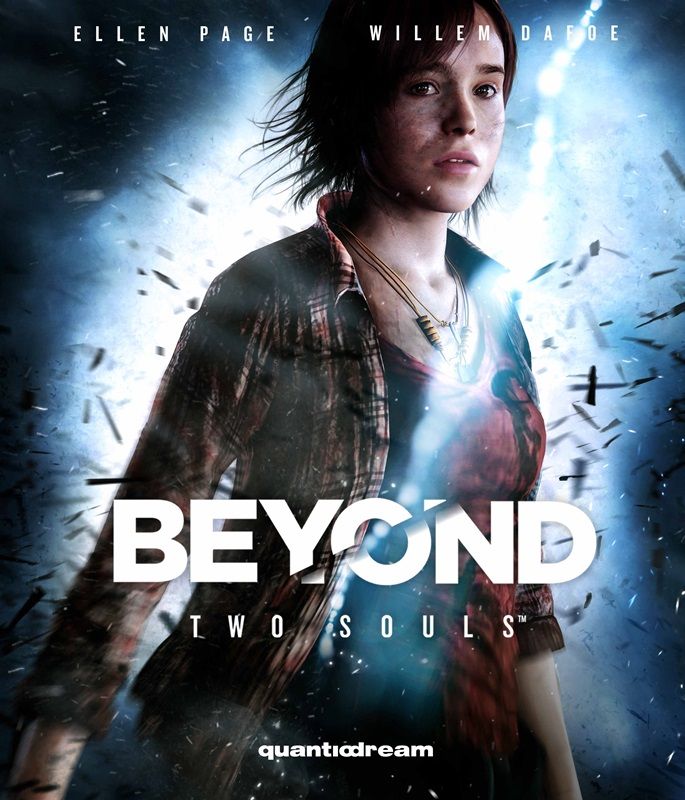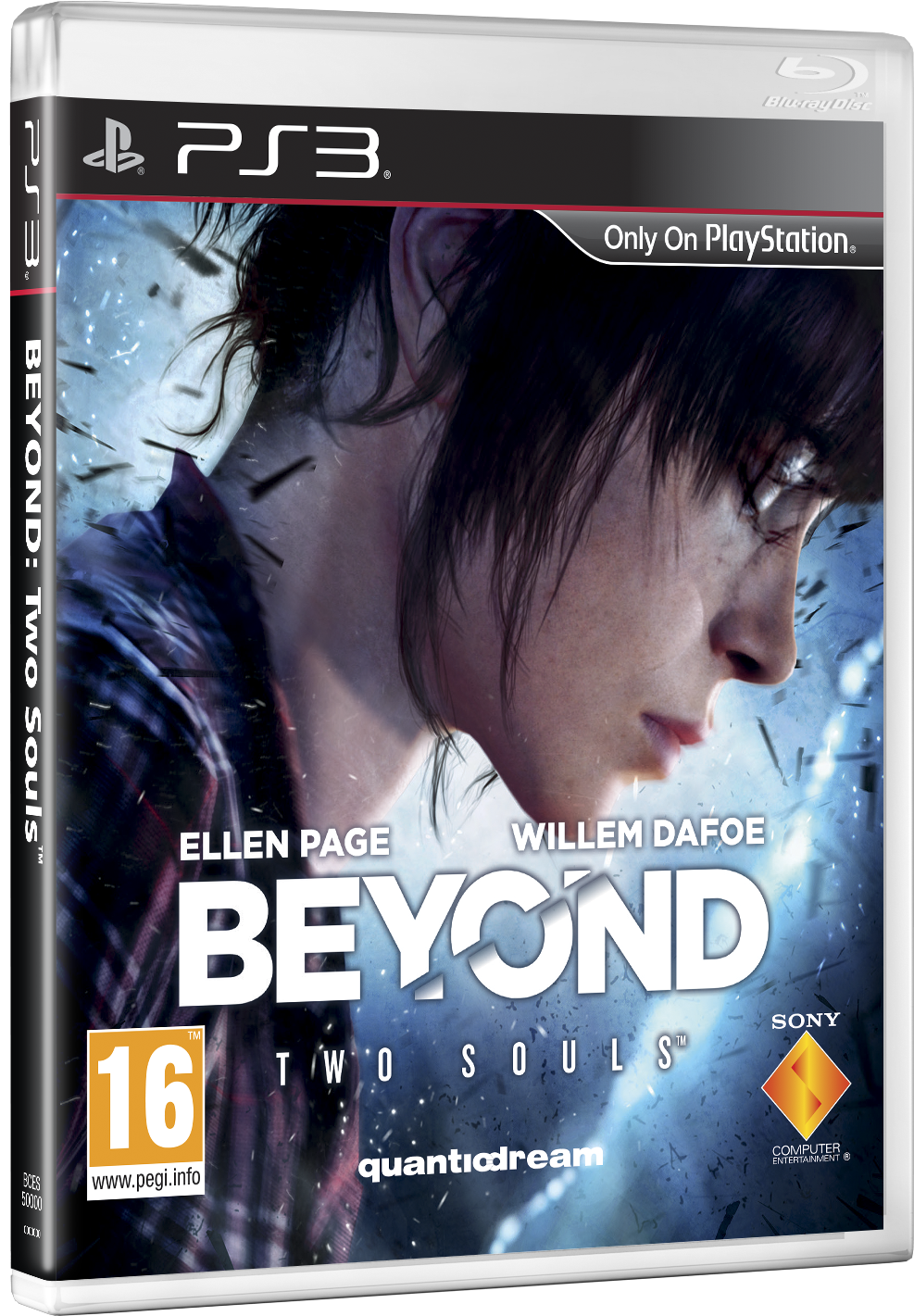

Share
8th October 2013
06:57pm BST

 However, when the group sat down to start discussing their experiences, and someone started talking about a particular scene that they'd played in a bar, he piped up and said "I didn't have that scene". So a discussion began regarding the game in general, and it turns out that choices he had made totally changed the path of his game, and very few of the players within the user circle had actually had the same experience when playing.
Another really interesting development is the fact that this game will also come with an app, so you can control the female protagonist Jodie Holmes, and Aiden, the spirit that has been with her since birth, using either the controller or the mobile app. This allows casual gamers to jump on the app and have a go, without having to master what can be a daunting controller.
With all of this in mind, we sat to chat with Guillhaume (well that should be Sir Guillhaume of course, as he was made a knight in France's National Order of Merit) about this game, where things are going on the next-gen consoles, and the importance of video games in today's world.
JOE: You've had an interesting path into gaming, you started very young and on one of your first projects you worked with Paulo Coelho (author of The Alchemist), that's a bit unusual!
Guillhaume de Fondaumiere: That's true, but I got interested in games because I thought it was a medium that was still pretty new and there was so much to be done. I thought, and I still think, that it's a medium that is fantastic for telling stories, for cultural expression.
At the beginning I saw my job as a producer as making a bridge between different forms of expression, which is why I tried to get authors involved, people from the world of comic books and graphic novels, I wanted to try and create something really interesting and try to get people that come from other spheres to help in creating and crafting the game.
With that the challenges were pretty clear from the outset, because telling a story in an interactive way is not easy. I feel like I've been following this process since the beginning, and one of the reasons I joined Quantic Dream was because I could see that David Cage was beginning to find the answers to some of those questions that I had been asking about combining story and interactivity.
http://youtu.be/c9D1N-MHwog
JOE: That interactivity is certainly something we saw when we played the game, how much of a challenge is that to create from a designer's point of view?
GdF: It's an incredible amount of work, because there still aren't a lot of people who are capable or able to visualise an interactive story. We've got David Cage at Quantic so we're lucky, and slowly but surely we've built a small team of designers around him that are able to work with and help his vision come to life.
JOE: So how do you actually put together a game like this where there are over twenty alternate endings? Do they sit and write twenty different stories?
GdF: For now, no, we're not at that stage yet! I wish! Our stories are pretty much written from beginning to end by David, some of the side quests and other parts are contributed to by other members of the team, of course. However, for him, it's nearly 15 months of pure writing day in and day out to come up with a 2000 page script, that the entire team then works on. It's a lot of work.
JOE: Does next-gen help develop concepts like this?
GdF: Next-gen is not going to resolve the challenge of writing something like this. What will help is the fact that with releases like Fahrenheit and Heavy Rain we're getting known outside the realm of video games, and getting people from more diverse backgrounds in, wooing talent to the studio that can creatively contribute to the stories. These people come on board and work with David learning how to integrate interactivity into their writing, and that's moving things forward. Next-gen will offer us possibilities though, apart from just the graphical capabilities. The social element and the embedded possibilities for social interaction that the next-gen bring are the most intriguing for me. It's another layer that we have to add to our creations and the kinds of games that we make certainly have to head in that direction I believe.
However, when the group sat down to start discussing their experiences, and someone started talking about a particular scene that they'd played in a bar, he piped up and said "I didn't have that scene". So a discussion began regarding the game in general, and it turns out that choices he had made totally changed the path of his game, and very few of the players within the user circle had actually had the same experience when playing.
Another really interesting development is the fact that this game will also come with an app, so you can control the female protagonist Jodie Holmes, and Aiden, the spirit that has been with her since birth, using either the controller or the mobile app. This allows casual gamers to jump on the app and have a go, without having to master what can be a daunting controller.
With all of this in mind, we sat to chat with Guillhaume (well that should be Sir Guillhaume of course, as he was made a knight in France's National Order of Merit) about this game, where things are going on the next-gen consoles, and the importance of video games in today's world.
JOE: You've had an interesting path into gaming, you started very young and on one of your first projects you worked with Paulo Coelho (author of The Alchemist), that's a bit unusual!
Guillhaume de Fondaumiere: That's true, but I got interested in games because I thought it was a medium that was still pretty new and there was so much to be done. I thought, and I still think, that it's a medium that is fantastic for telling stories, for cultural expression.
At the beginning I saw my job as a producer as making a bridge between different forms of expression, which is why I tried to get authors involved, people from the world of comic books and graphic novels, I wanted to try and create something really interesting and try to get people that come from other spheres to help in creating and crafting the game.
With that the challenges were pretty clear from the outset, because telling a story in an interactive way is not easy. I feel like I've been following this process since the beginning, and one of the reasons I joined Quantic Dream was because I could see that David Cage was beginning to find the answers to some of those questions that I had been asking about combining story and interactivity.
http://youtu.be/c9D1N-MHwog
JOE: That interactivity is certainly something we saw when we played the game, how much of a challenge is that to create from a designer's point of view?
GdF: It's an incredible amount of work, because there still aren't a lot of people who are capable or able to visualise an interactive story. We've got David Cage at Quantic so we're lucky, and slowly but surely we've built a small team of designers around him that are able to work with and help his vision come to life.
JOE: So how do you actually put together a game like this where there are over twenty alternate endings? Do they sit and write twenty different stories?
GdF: For now, no, we're not at that stage yet! I wish! Our stories are pretty much written from beginning to end by David, some of the side quests and other parts are contributed to by other members of the team, of course. However, for him, it's nearly 15 months of pure writing day in and day out to come up with a 2000 page script, that the entire team then works on. It's a lot of work.
JOE: Does next-gen help develop concepts like this?
GdF: Next-gen is not going to resolve the challenge of writing something like this. What will help is the fact that with releases like Fahrenheit and Heavy Rain we're getting known outside the realm of video games, and getting people from more diverse backgrounds in, wooing talent to the studio that can creatively contribute to the stories. These people come on board and work with David learning how to integrate interactivity into their writing, and that's moving things forward. Next-gen will offer us possibilities though, apart from just the graphical capabilities. The social element and the embedded possibilities for social interaction that the next-gen bring are the most intriguing for me. It's another layer that we have to add to our creations and the kinds of games that we make certainly have to head in that direction I believe.
 JOE: You've often spoken in the past about your belief that games are hugely important as cultural artefacts, both in terms of the positive and negative press they get
GdF: For many years I've been an advocate of the belief that games can be a form of cultural expression. What I mean by that is that more and more creative people are looking to express themselves through this medium, which means that we're at a very interesting juncture for video games right now.
People now, especially young people, are thinking that they want to express themselves not through a book or through a movie but through a game, in an interactive manner and give people the possibility to interact with what they have to say. I think that's very interesting, and I hope that more and more games will be recognised as a legitimate form of cultural expression.
Like any form of expression that's relatively new however, we've been under attack. Often we in gaming are seen as being the root of all the evil in the world and that the violence in our games creates violence in real life, which no serious study has ever shown, of course, but nonetheless, like rock and roll in the 1960s and like comic books in the 1980s, today it's video games that are branded as bad for teenagers and kids in particular.
On the other hand we have to take our responsibility more seriously when it comes to this, and I do think we should ban gratuitous violence in our games, it's completely unnecessary.
JOE: For our readers who have played Heavy Rain, they'll recognise some similarities but on a bigger scale here, what's the thing that you think stands out the most in Beyond: Two Souls?
GdF: What I'm most proud of is that we've managed to create an experience that's compelling for both gamers, those who have been playing for many years, and non-gamers. We've enabled them to jump in and have a go, not only can they look over the shoulder of the person playing the game, but they can actually get involved and play. I think that's quite an achievement from us.
JOE: You've often spoken in the past about your belief that games are hugely important as cultural artefacts, both in terms of the positive and negative press they get
GdF: For many years I've been an advocate of the belief that games can be a form of cultural expression. What I mean by that is that more and more creative people are looking to express themselves through this medium, which means that we're at a very interesting juncture for video games right now.
People now, especially young people, are thinking that they want to express themselves not through a book or through a movie but through a game, in an interactive manner and give people the possibility to interact with what they have to say. I think that's very interesting, and I hope that more and more games will be recognised as a legitimate form of cultural expression.
Like any form of expression that's relatively new however, we've been under attack. Often we in gaming are seen as being the root of all the evil in the world and that the violence in our games creates violence in real life, which no serious study has ever shown, of course, but nonetheless, like rock and roll in the 1960s and like comic books in the 1980s, today it's video games that are branded as bad for teenagers and kids in particular.
On the other hand we have to take our responsibility more seriously when it comes to this, and I do think we should ban gratuitous violence in our games, it's completely unnecessary.
JOE: For our readers who have played Heavy Rain, they'll recognise some similarities but on a bigger scale here, what's the thing that you think stands out the most in Beyond: Two Souls?
GdF: What I'm most proud of is that we've managed to create an experience that's compelling for both gamers, those who have been playing for many years, and non-gamers. We've enabled them to jump in and have a go, not only can they look over the shoulder of the person playing the game, but they can actually get involved and play. I think that's quite an achievement from us.

Explore more on these topics: